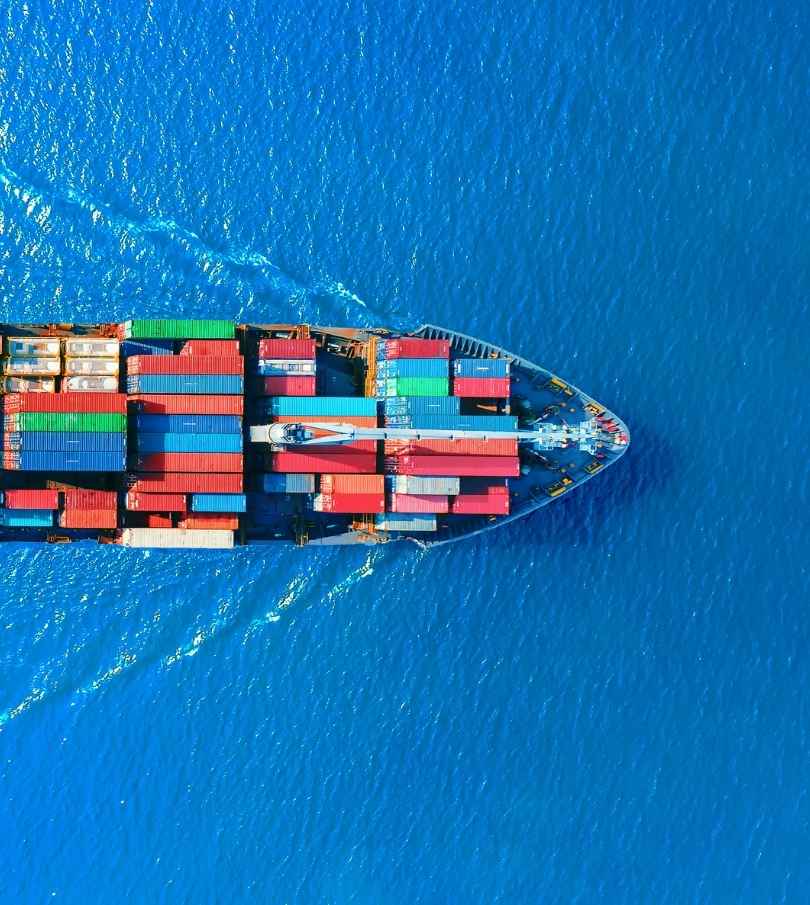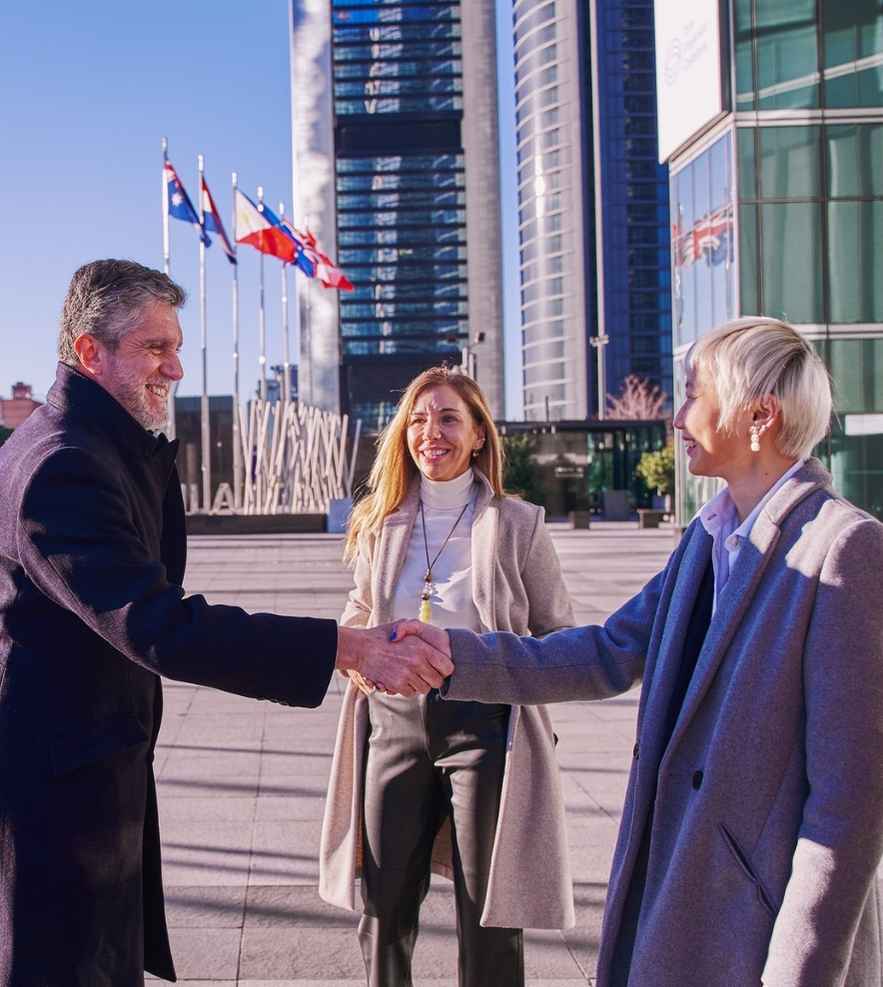Our VAT training sessions are tailored to fit your business activities, giving you insights and knowledge. Tailoring the training allows us to address the specific VAT challenges you face, making the learning experience more practical and relevant.

Increase your understanding of VAT regulations for your business
On November 5, 2024, the ViDA proposal was approved by EU finance ministers. The agreement clears the way for the Council to formally adopt the measures after consulting the European Parliament.
The ViDA marks an important step to more uniform digitized VAT system in the EU. Most importantly, e-invoicing becomes the new standard for intra-EU transactions from 2030. Businesses find most welcome the extension of the One-Stop-Shop (OSS), e.g. reducing of the VAT registration obligations in various EU countries and possibility to report movement of goods within the EU via a single VAT registration. This will apply from 2028.
The article discusses the compromise text that was just adopted. The last changes contain extension of several important deadlines. The main difference as compared to the previous compromise text of June concern VAT treatment of sales of non-VAT-registered sellers of short-term accommodation and road transport via platforms. EU countries must start applying the platform fiction or so-called ‘deemed supplier rule’ to these sales (it means that the platforms should pay VAT on these sales) from 1 January 2030, but can voluntarily implement it from 1 July 2028. Additionally, the deadline for the extension of the OSS to all B2C transactions and the mandatory reverse charge is postponed to 1 July 2028.
Background
Major changes in the EU VAT were proposed at the end of 2022, for more information see our article "The European Commission proposes ambitious VAT reforms”. This proposal includes new EU VAT rules for EU digital reporting requirements (DRR) based on e-invoicing; new VAT measures for short-term accommodation and passenger transport platforms, and an extension of the VAT One-Stop Shop (OSS). This article gives an overview of the last version of the proposal that was made public on 30 October 2024.
High-level timeline ViDA
- 2025 (20 days from adoption of the ViDA): No approval of the European Commission for domestic e-invoicing required anymore
- 1 January 2027: Updates in the e-commerce package; OSS extension to supplies of electricity, gas and heat.
- 1 July 2028: Single VAT registration (extension of the OSS to all B2C supplies, stock transfers and application of the mandatory reverse charge) and voluntary implementation of the deemed supplier rule to accommodation and mobility platforms
- 1 January 2030: Extended VAT obligations for platforms: mandatory implementation of the deemed supplier rule to accommodation and mobility platforms
- 1 July 2030: Mandatory Digital Reporting Requirements (DRR) based on e-invoicing for B2B intra-EU transactions and transactions subject to the mandatory reverse charge; harmonization of domestic e-invoicing (except these existing before 2024) with EU standards
- 1 January 2035: Harmonization of pre-2024 existing domestic e-invoicing with EU standards
The most important changes are summarized below.
DRR based on e-invoicing
From 2025 - no derogation is required for domestic e-invoicing requirements
Member States (MSs) are not required to ask for an agreement from the European Commission to implement e-invoicing requirements for domestic transactions (provided it applies only to established taxpayers) after the ViDA is adopted. MSs consequently have the option to introduce mandatory e-invoicing for domestic B2B and B2C transactions (for established businesses) without the need for a derogation from the European Commission immediately after the ViDA is adopted (expected in the beginning of 2025). This could leave businesses with minimal time to prepare.
From 1 July 2030 common DRR/e-invoicing for intra-EU transactions
Effective from 1 July 2030, there will be an obligation to:
- issue structured e-invoices including all required data in standard format within 10 days from a chargeable event; and
- transmit data from these invoices to the relevant national VAT authority’s electronic portal in real time.
This obligation will cover certain cross-border supplies and acquisitions of goods and services as well as supplies subject to the mandatory domestic reverse charge. While the supplier should report data of the sale when the e-invoice is issued or should be issued, the recipient should report the transaction within 5 days.
Harmonization of DRR not achieved as initially proposed
Amended proposal allows certain validation requirements, termed ‘accreditation schemes’ (this was initially not included). Pre-clearance systems are not explicitly forbidden. Furthermore, compared to the original proposal, MSs have more flexibility over the DRR format.
Domestic DRR should be harmonized with EU standard by 1 July 2030/1 January 2035
If MSs implement new domestic DRR after 1 January 2024, these should be harmonized with EU standards by 1 July 2030. Domestic DRR already in force or approved by the EU before 1 January 2024 (i.e., these in force in Italy, France, Poland, Germany, Romania and Belgium) should be harmonized with EU rules by 1 January 2035.
Additional domestic VAT reporting requirements are allowed
EU member states may impose additional transaction control requirements not covered by EU DRR (such as SAF-T, cash registers and transaction listings).
Impact for business
The proposed changes mean that not only will sellers be obliged to issue e-invoices, but buyers should be able to receive e-invoices meeting at least EN16931 standards. Sellers and buyers also should be able to issue and/or receive invoices meeting various existing or new domestic e-invoicing/DRR requirements. They also should be able to comply with other transaction control systems of MSs which are allowed under the ViDA rules.
A decrease in fragmentation in the compliance requirements will not be achieved as initially proposed because the amended rules include less harmonization for businesses operating cross-border in the EU. Since the amended ViDA includes less harmonized DRR and domestic e-invoicing rules and allows various other domestic transaction control systems, businesses will still face differing requirements in MSs for domestic and intra-EU transactions and need to have various software solutions to be compliant when operating across the EU.
Extension of OSS and other measures to reduce compliance costs for business
These measures generally apply from 1 July 2028 and aim at decreasing the need for multiple VAT registrations by expanding the OSS and domestic reverse charge.
From 1 January 2027, the OSS will be extended to cross-border supplies of natural gas, electricity, heating, and cooling.
Extension of OSS
From 1 July 2028, the OSS will be extended to
- all B2C supplies of goods and services, including domestic supplies of goods; and
- intra-EU stock transfers.
Mandatory domestic reverse charge (MDRC)
From 1 July 2028, the domestic reverse charge will apply for all B2B supplies of goods and services made by non-established and non-VAT-registered businesses if the customer is registered for VAT in the MS where the VAT is due. MSs may opt for applying the MDRC to all supplies by non-established businesses.
Impacts for business
The proposed changes will reduce the VAT compliance costs for businesses, however, their scope remains limited and does not cover all possible (B2B) scenarios. In addition, input VAT still cannot be deducted via the OSS.
Updated VAT Rules for Platform Economy and E-Commerce
The proposed rules enhance the role of online marketplaces in the collection of VAT when they facilitate a supply of passenger transport or short-term accommodation.
Providing services of rental and passenger transport via platforms
From 1 January 2030 (optionally from 1 July 2028), a deemed supplier rule is introduced for platforms operating in passenger transport and short-term accommodation sectors. The platforms will be responsible for collecting and remitting VAT when their underlying suppliers will not charge VAT because they are, for example, individuals acting in their private capacity (non-entrepreneurs for VAT purposes) or exempted small businesses, for example, operating under the VAT registration threshold.
The proposed rules increase the administrative burden for certain platforms and the VAT burden for small businesses or individuals who operate via such platforms.
What next?
The European Council made up of the representatives of the MSs after consulting the European Parliament, must approve the proposed amendments before they become effective.
Businesses are recommended to analyze the possible impact and prepare for major VAT changes ahead.
Please contact us if you have any questions or if you need more information about the ViDA proposal and its implications for your business.











